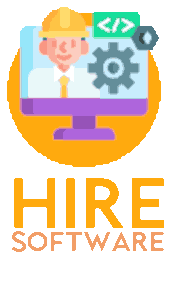Tricks of the Trade for Software Engineering Managers are key in mastering the harmonious blend of technology, leadership, and team synergy.
As a leader of a software development team, your role demands expertise in technology, communication, and management skills.
As a software engineering manager, you must stay ahead of the curve and ensure your projects are delivered on time, budget, and quality. By implementing the tricks we share in this article, you can drive your team towards success and achieve your project goals.
Key Takeaways
- Enhance your software engineering manager skills with these tricks of the trade
- Improve productivity and foster innovation in your team
- Master effective management techniques for successful software development projects
Setting Clear Goals and Expectations
As a software engineering manager, it is essential to provide clear guidance to your team in the form of specific goals and expectations. Communicating these goals effectively can help align team members’ efforts and promote accountability.
Here are some tips to achieve this:
- Use specific and measurable goals: Ensure that your goals are clear and concise, with quantifiable metrics that can be tracked and evaluated.
- Collaborate with your team: Involve your team members in setting goals and expectations, providing them with a sense of ownership and commitment to achieving these targets.
- Establish a timeline: Set deadlines and expectations for project milestones, ensuring that team members have a clear idea of what needs to be done and when.
- Provide regular feedback: Provide feedback and constructive criticism throughout the project, allowing team members to adapt and adjust their work as needed.
By setting clear goals and expectations, you can ensure that your team is working towards a common objective, and everyone understands what is expected of them.
Effective Communication Strategies
Effective communication is vital for software engineering managers. As a leader, your job is to ensure that your team understands priorities, goals, and expectations. However, communication is not a one-way street. It is about fostering an environment where team members feel comfortable sharing feedback, asking questions, and expressing their ideas.
Regular Check-ins
Regular check-ins are a great way to keep your team aligned and informed. Schedule one-on-one meetings with team members to discuss their progress, address any concerns, and provide feedback. These meetings can be weekly or bi-weekly, depending on the needs of each team member. During these meetings, encourage open communication and active listening.
Collaboration Platforms
Collaboration platforms, such as Slack or Microsoft Teams, are excellent tools for improving communication within your team. They allow team members to communicate in real-time, share files, and collaborate on projects. These platforms also offer features like channels and direct messaging, which can help streamline communication and minimize noise.
Clear and Concise Messages
When communicating with your team, it is essential to be clear and concise. Long-winded or vague messages can lead to confusion and misunderstandings. Instead, focus on delivering messages that are easy to understand and actionable. Use bullet points or numbered lists to make information more digestible and memorable.
Building a Strong Team Culture
A positive and inclusive team culture can greatly improve productivity and collaboration within your software development team. Here are some tricks and tips for building a strong team culture:
1. Define Your Team’s Core Values:
Start by defining the core values that represent your team. Encourage your team members to participate in the process. The values should reflect the team’s aspirations, beliefs, and personality.
2. Foster Open Communication:
Create an environment where team members feel comfortable sharing their thoughts and insights. Encourage open communication by organizing regular team meetings, one-on-one sessions, and brainstorming sessions. Ensure that everyone gets a chance to contribute and share their ideas.
3. Celebrate Achievements:
Recognizing and celebrating achievements is a great way to build team morale and motivate your team members. Celebrate milestones, project completions, and personal achievements. Encourage team members to recognize each other’s contributions and achievements.
4. Promote Collaboration:
Encouraging team members to collaborate is essential to building a strong team culture. Foster collaboration by organizing team-building activities, encouraging cross-functional projects, and promoting knowledge sharing.
5. Lead by Example:
As a software engineering manager, you have a significant impact on the team’s culture. Lead by example by demonstrating the values and behaviors that you expect from your team. Encourage team members to follow suit.
By implementing these tricks, you can build a strong team culture, boost morale, and improve collaboration within your software development team.
Empowering and Trusting Your Team

Empowering and trusting your software development team is crucial for their growth and success. As a software engineering manager, it’s important to delegate tasks and responsibilities to your team members while providing them with autonomy.
One effective way to empower your team is by fostering a sense of ownership. Encourage your team members to take ownership of their work and give them the freedom to make decisions. This not only promotes creativity and innovation but also enhances their professional development.
It’s also important to trust your team members and provide them with the resources they need to do their job effectively. This includes access to training and development programs, as well as the tools and software they need to complete their tasks.
Delegating Tasks Effectively
Delegation is key to empowering your team and enhancing productivity. However, it’s important to delegate tasks effectively to ensure that they are completed on time and meet the required standards. Here are some tips for delegating tasks effectively:
| Tips for Delegating Tasks Effectively |
|---|
| Communicate clearly: Ensure that the task and expectations are clearly communicated to the team member. |
| Choose the right person: Assign tasks to team members who have the necessary skills and experience to complete them effectively. |
| Provide support: Offer assistance and support to team members who may need it while completing their tasks. |
| Set deadlines: Establish clear deadlines for tasks to ensure that they are completed on time. |
Nurturing Autonomy
Providing autonomy to your team members can enhance their sense of ownership and promote creativity. Here are some ways to nurture autonomy:
- Clarify boundaries: Establish clear boundaries and guidelines for team members to ensure that they understand their roles and responsibilities.
- Encourage decision-making: Encourage team members to make decisions and provide guidance and support when necessary.
- Provide feedback: Offer feedback and recognition for accomplishments to enhance motivation and promote growth.
By empowering and trusting your team, you can unlock their full potential and drive innovation in your software development projects.
Promoting Continuous Learning
In the rapidly evolving field of software engineering, continuous learning is crucial to stay ahead of the competition. By fostering a culture of learning and development within your team, you can unleash their full potential and drive innovation. Here are some tips to promote continuous learning:
Organize Workshops and Training Sessions
Regular workshops and training sessions can help your team stay up-to-date with the latest industry trends and technologies. You can bring in expert speakers or organize in-house training sessions to improve your team’s skills and knowledge.
Encourage Knowledge Sharing
Encouraging your team to share their knowledge and expertise can help promote continuous learning. Consider organizing knowledge-sharing sessions or creating internal wikis to facilitate information exchange and collaboration.
Provide Opportunities for Growth
Providing opportunities for growth and development can keep your team motivated and engaged. Consider offering mentorship programs, career development plans, or opportunities to work on challenging projects that stretch their skills and knowledge.
Recognize and Celebrate Achievements
Recognizing and celebrating achievements can motivate your team to continue learning and striving for excellence. Consider acknowledging your team’s accomplishments, both big and small, and rewarding them with incentives or recognition programs.
By promoting continuous learning, you can create a culture of growth and development within your software engineering team. This can result in improved performance, increased innovation, and ultimately, greater success for your organization.
Streamlining Processes and Workflow
In today’s fast-paced software development environment, streamlining processes and workflows is crucial to boosting productivity and reducing errors. By organizing your team’s workflow in an efficient manner, you can save valuable time and resources, and better manage your projects. However, streamlining processes and workflow is not a one-time task; rather, it requires ongoing evaluation and optimization to ensure that your methods remain effective.
The Importance of Process Optimization
Optimizing processes involves analyzing your team’s current workflow, identifying areas of improvement, and implementing changes to achieve better efficiency and quality. Process optimization can lead to faster delivery times, higher quality products, and better team morale. It also provides better visibility over project progress and enables you to make informed decisions and adjustments as needed.
Strategies for Streamlining Workflow
Achieving streamlined workflow requires a proactive approach to process optimization. Here are some strategies to consider:
- Identify bottlenecks: Analyze your team’s workflow to identify bottlenecks, such as manual processes or inefficient tools. Once you’ve identified the bottlenecks, you can work to resolve them by automating tasks, using better tools, or delegating tasks to other team members.
- Eliminate unnecessary steps: Review your team’s workflow to identify any steps that are not critical to the success of the project. Eliminating unnecessary steps can help to reduce the time and resources required to complete a project.
- Implement automation: Automation can help to improve efficiency and reduce errors. Consider automating tasks such as testing, deployment, and code formatting to reduce workload and free up time for your developers to focus on more complex tasks.
- Optimize project management: Choose a project management tool that suits your team’s needs. Use a tool that allows you to manage project progress, assign tasks, and communicate with team members in real-time. Ensure that the tool you choose integrates with other tools used by your team.
The Benefits of Streamlined Workflow
Streamlining processes and workflow can lead to several benefits for your team:
- Improved productivity
- Higher quality products
- Reduced errors and rework
- Better team morale
- Improved project visibility and decision-making
By adopting a proactive approach to process optimization, you can achieve a streamlined workflow that promotes productivity, quality, and team satisfaction.
Managing Conflict Effectively
Conflict is inevitable in any team, but it doesn’t have to be destructive. As a software engineering manager, it’s your role to manage conflicts effectively and turn them into opportunities for growth. Here are some tips for achieving this:
- Practice active listening: When a team member expresses a concern or disagreement, listen carefully and try to understand their perspective.
- Facilitate open discussions: Encourage team members to express their views and opinions. Avoid shutting down discussions or taking sides.
- Focus on the issues: Keep the conversation focused on the issue at hand and avoid personal attacks or finger-pointing.
- Collaborate on solutions: Work with the team to find solutions that address everyone’s concerns and needs.
- Follow up: Once a solution has been agreed upon, follow up with team members to ensure that it’s working and that everyone is satisfied with the outcome.
“Effective conflict management requires patience, empathy, and a willingness to listen and understand. By managing conflicts in a constructive manner, you can build trust and respect within your team.”
Promoting Work-Life Balance
Maintaining a healthy work-life balance is crucial for the well-being and productivity of your team. As a software engineering manager, it’s essential to prioritize your team’s well-being to create a positive and sustainable work environment. Here are some strategies to promote work-life balance:
- Encourage breaks: Encourage your team to take regular breaks to recharge their minds and avoid burnout. You can also encourage them to step away from their workstations during lunch breaks and engage in other activities.
- Flexible scheduling: Consider implementing flextime or remote work options to allow your team to balance work and personal commitments effectively. Offering flexible schedules enables them to tailor their work hours to fit their lifestyle and manage life’s demands.
- Support mental health initiatives: Mental health is vital to the overall well-being of your team. You can support mental health initiatives by providing resources such as counseling, mindfulness training, and access to mental health professionals.
Promoting work-life balance in your team shows that you value and care about their well-being. Creating a positive and sustainable work environment leads to higher productivity, job satisfaction, and a happier team.
Embracing Innovation and Adaptability
The field of software engineering is constantly evolving, with new technologies and trends emerging at a rapid pace. As a software engineering manager, it’s essential to embrace innovation and adaptability to stay ahead of the curve and drive your team towards success.
One way to foster a culture of innovation is to encourage experimentation. Provide your team with the freedom to try out new ideas and approaches, even if they may not always succeed. By embracing failure as a learning opportunity, your team will be more willing to take risks and come up with creative solutions.
Another strategy for embracing innovation is to stay up to date with the latest technologies and tools. Attend conferences, read industry blogs, and network with other professionals to stay informed about emerging trends and best practices.
Adaptability is also key in today’s fast-paced software development landscape. As market demands and technologies shift, it’s essential to be flexible and adapt your strategies and processes accordingly. Utilize agile development methodologies, such as scrum or kanban, to enable your team to pivot quickly and adjust to changing requirements.
Overall, embracing innovation and adaptability requires an open-minded and forward-thinking approach. By encouraging experimentation, staying informed about emerging trends, and embracing agility, you can drive your team towards long-term success.
Conclusion

As a software engineering manager, you play a crucial role in leading your team towards success. By implementing the tricks and tips discussed in this article, you can enhance productivity, foster innovation, and cultivate a positive and sustainable work environment.
Remember to set clear goals and expectations, communicate effectively, build a strong team culture, empower and trust your team, promote continuous learning, streamline processes and workflow, manage conflicts effectively, promote work-life balance, and embrace innovation and adaptability.
By mastering these skills, you can become an effective and inspiring leader in the software development world. Good luck!
Q: What are some tips for software engineering managers to lead a successful team?
A: Some tips for software engineering managers to lead a successful team include setting clear goals and expectations, promoting effective communication, building a strong team culture, empowering and trusting your team, promoting continuous learning, streamlining processes and workflow, managing conflict effectively, promoting work-life balance, and embracing innovation and adaptability.
Q: Why is setting clear goals and expectations important for software engineering managers?
A: Setting clear goals and expectations helps align team members’ efforts, promotes accountability, and ensures that everyone is working towards a common objective. It also helps in measuring progress and celebrating achievements.
Q: How can software engineering managers improve communication within their team?
A: Software engineering managers can improve communication within their team by having regular check-ins, utilizing collaboration platforms, encouraging open and honest communication, and providing a safe space for team members to share their ideas and concerns.
Q: How can software engineering managers build a strong team culture?
A: Software engineering managers can build a strong team culture by organizing team-building activities, recognizing and celebrating achievements, promoting inclusivity and diversity, fostering a collaborative environment, and creating opportunities for professional growth and development.
Q: How can software engineering managers empower and trust their team?
A: Software engineering managers can empower and trust their team by delegating tasks, providing autonomy, encouraging decision-making, supporting professional development, and fostering a sense of ownership among team members.
Q: What are some strategies for promoting continuous learning within a software development team?
A: Some strategies for promoting continuous learning within a software development team include organizing workshops, encouraging knowledge sharing, providing access to learning resources, supporting certifications and training programs, and fostering a culture of curiosity and experimentation.
Q: How can software engineering managers streamline processes and workflow?
A: Software engineering managers can streamline processes and workflow by identifying and eliminating bottlenecks, leveraging automation tools and technologies, optimizing project management processes, and continuously evaluating and improving existing workflows.
Q: How can software engineering managers effectively manage conflict?
A: Software engineering managers can effectively manage conflict by practicing active listening, facilitating open discussions, mediating conflicts impartially, focusing on finding solutions rather than assigning blame, and promoting a healthy and respectful work environment.
Q: What strategies can software engineering managers use to promote work-life balance?
A: Software engineering managers can promote work-life balance by offering flexible scheduling options, encouraging breaks and time off, supporting mental health initiatives, promoting boundaries between work and personal life, and leading by example in maintaining a healthy work-life balance.
Q: How can software engineering managers embrace innovation and adaptability?
A: Software engineering managers can embrace innovation and adaptability by fostering a culture of experimentation and risk-taking, encouraging idea generation and creativity, staying updated with the latest technologies and industry trends, and being open to change and adapt to evolving market demands.








